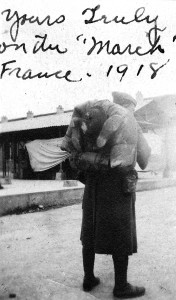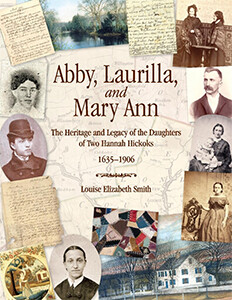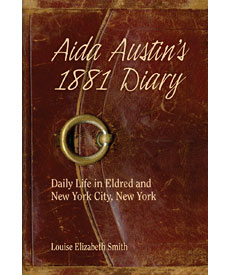
McKinley, France,
to Jennie Austin, Eldred
August 9, 1918
Dear Mother,
I hope you will pardon me for not writing sooner. But when I had paper, I did not have time and when I had time, I could not get paper. Have you heard from Raymond lately? I have had one letter from him.
I don’t suppose there are so many city boarders up this year.
Aunt Aida sent me a couple of pictures of the children saluting. They certainly looked comical, especially Robbie. Is Willie still working at Proctor’s?
Tell Grandfather that I will write him sometime. When I get back home, we will have some time swapping war stories. Raymond will talk for a week steady when he gets back.
I am getting along well. Except in a big drive there is not much danger, so you need not worry about me. Give my love to all. Your loving son, Mac
Aida Austin, Eldred,
to McKinley Austin, France
August 11, 1918
Dear Nephew,
The letter I commenced to you the forepart of last week, I did not get finished until the last of the week, but as I have planned to send you a letter every Monday, I will write you a few lines tonight so as to send it off in the morning.
Fred Morgan is home for a few days. I have not seen him…George Sidwell is at one of the camps in one of the southern states. He is attending some kind of a school. His father was telling your dad that at Panama they wanted George to drill for an officer, but George didn’t want to be an officer. It is quite comical to hear about the different fellows from this place being officers.
The Congregational Church had their fair last Thursday and Friday and took in a little over $300 the first day.
We have been having some fearfully hot weather, but it is cooler now again. I hope you haven’t had such hot weather over there.
Be sure and send my letters to Barryville, N.Y., box 26. Hoping to hear from you soon. Your loving aunt, Aida







